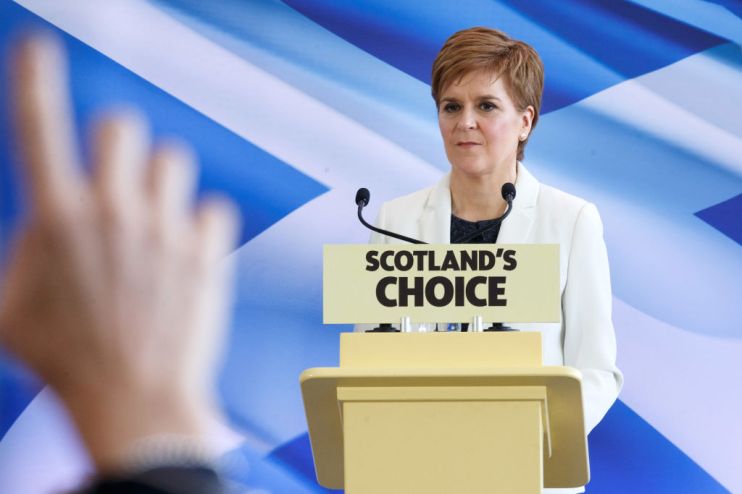Deliver us from Evel: Whitehall is gearing up to fight Scottish Independence

Six weeks on from the Scottish election defined by a campaign for a second independence referendum and the Nationalist camp has been eerily quiet about indyref2 since the ballots were cast. Nicola Sturgeon and her party’s commitment to a second independence vote remain undimmed, but they know Scots are wary of rushing into another campaign while the country is still battling to escape from the grip of the Covid pandemic.
The Unionist camp can’t afford to take its eye off the ball. The Scottish problem won’t go away, at some stage the Nationalist will have to be confronted – and defeated – again, Those of us determined to hold the United Kingdom together are going to have to be ready for a fight.
There are positive signs that within Whitehall, thinking is well underway about how to deliver a positive campaign for the UK to the people of Scotland. Last week, ministers announced their intention to deliver us from Evel – in other words, to abandon David Cameron’s ill-judged move towards “English votes for English laws” in Westminster. It’s a clever tactical move as it delivers symbolism of togetherness, without posing a real practical problem. There would be a far greater crisis of legitimacy in England if a UK government relied on Scottish MPs for a majority in the House of Commons.
Let’s suppose for arguments sake, there was a narrow majority of English MPs for the Conservative Party, but the overall balance, taking into account MPs from across the UK, favoured the Labour party. A Labour government with only a minority support in England would, those circumstances, be able to impose tax increases on the English with support from Scottish MPs. This was the threat Evel was supposed to solve.
It is not a problem that will arise any time soon, owing to the disastrous electoral position of the Labour party in both England and Scotland. There is going to be no material difference between the way England votes and the colour of the Westminster government for the foreseeable future.
Abandoning Evel is a cost-free means of removing one of the SNP’s (admittedly more minor) grievances about the UK’s constitutional arrangements. It won’t “save the Union”. Of course it won’t. But it’s a step in the right direction.
It’s been accompanied by a renewed discussion over who should be able to vote in any second independence referendum and if Scottish people living elsewhere in the UK will be able to cast a ballot. The SNP set a precedent after they fiddled with the franchise and extended the right to vote to 16 and 17 year olds.
There are some 850,000 Scots living outside of Scotland who could vote under new rules. They were disenfranchised in 2014 and there is a good argument to be made that that was unfair and inappropriate. The Nationalists have never provided a convincing answer as to why such voters should be denied a say in deciding whether Scotland should be independent of the rest of the UK. After all, when these 850,000 people left Scotland, none of them thought they were emigrating.
Moving between Scotland and England is no different from moving between Yorkshire and Devon and, before any change is made to that, there is sound principle and good reason to include people directly affected by it in any vote on the matter.
All too often Whitehall only reacts. Getting on the front foot, and showing that the machinery of state is thinking actively and creatively about Scotland even while the Nationalists have gone uncharacteristically quiet about independence, is all to the good.